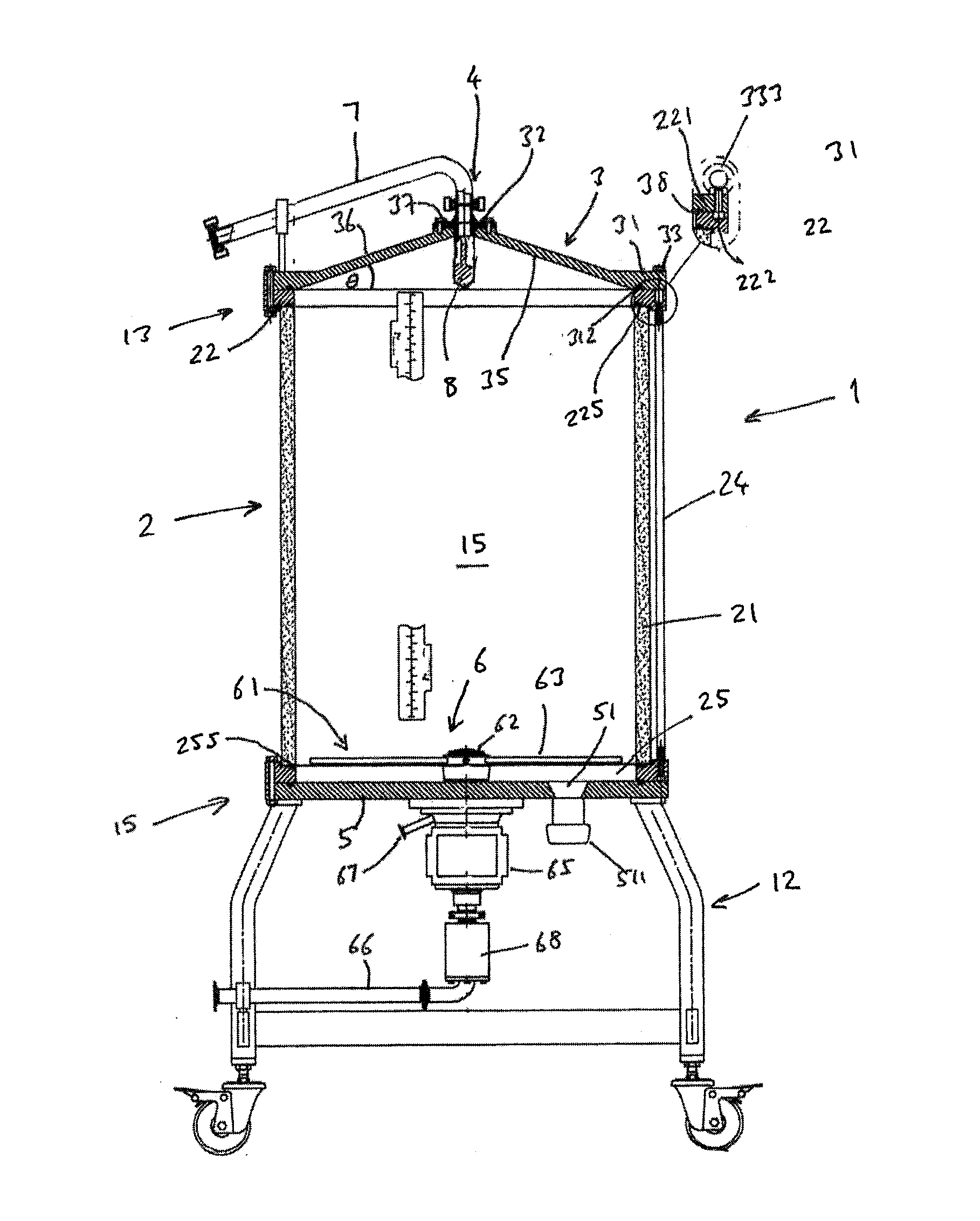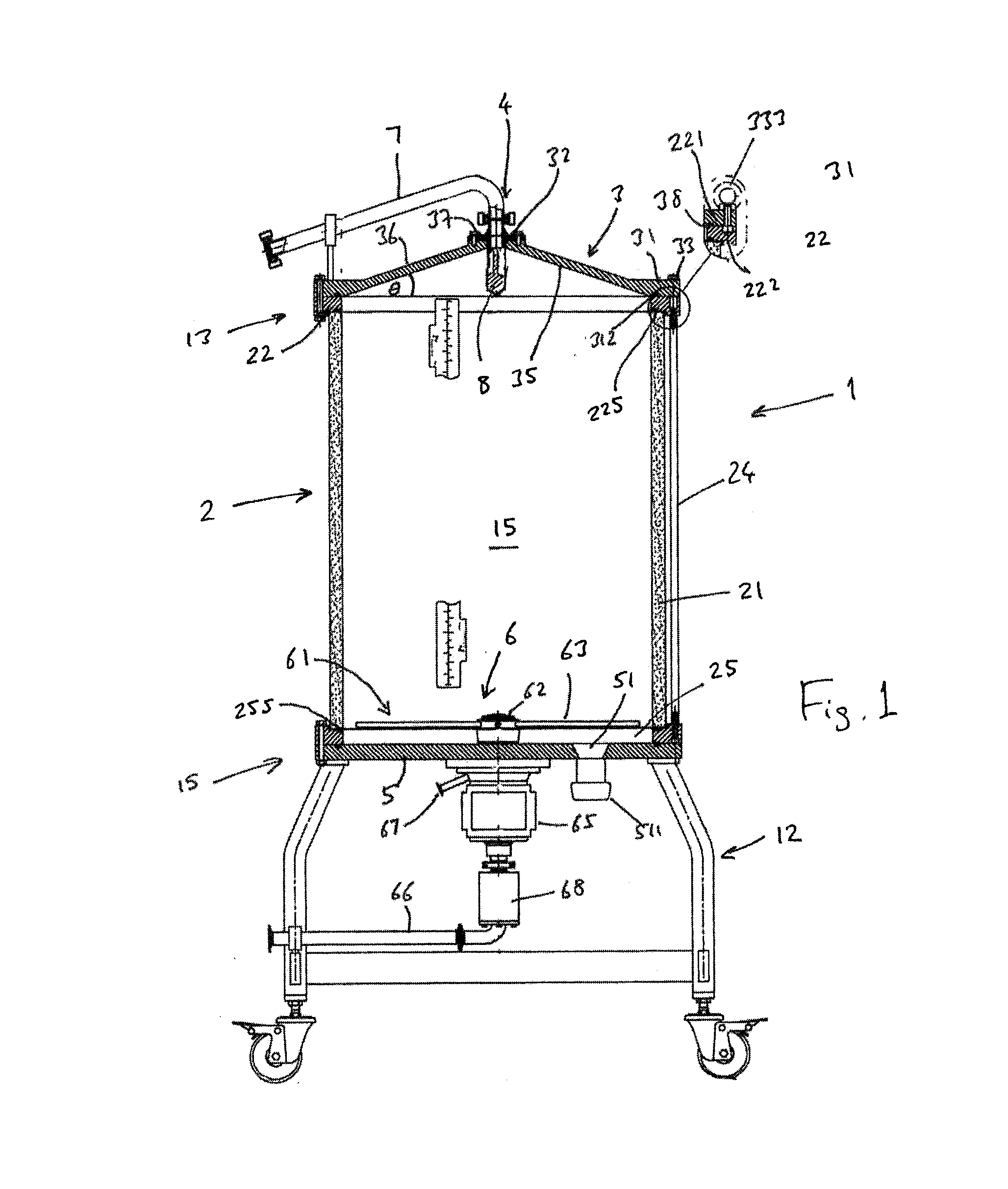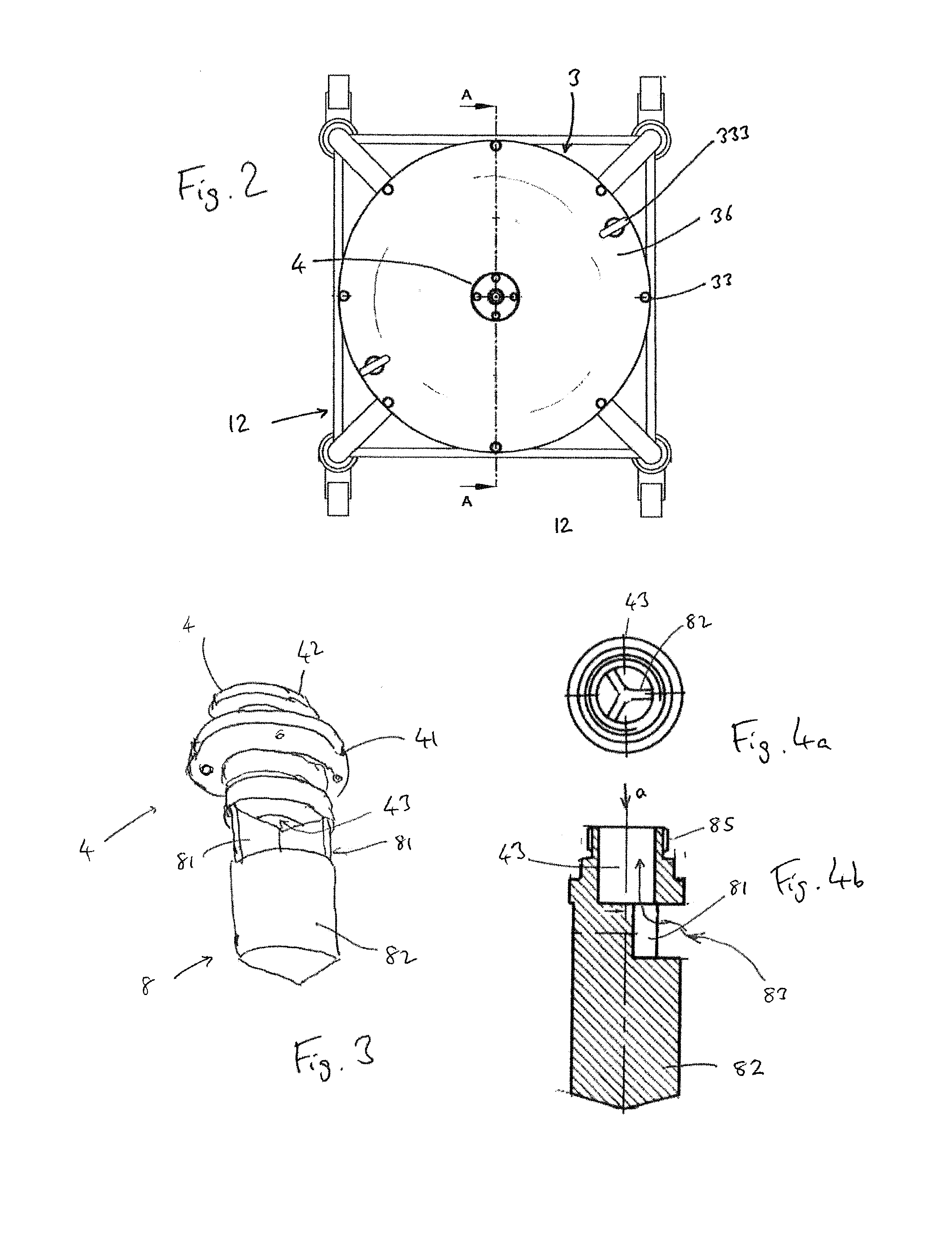Chromatography columns and processes
a technology of chromatography and columns, applied in the direction of peptide preparation methods, solid sorbent liquid separation, component separation, etc., can solve the problems of inability to industrialize, solids would block and contaminate the system, and the apparatus is relatively complex, so as to achieve the effect of expanding the bed adsorption
- Summary
- Abstract
- Description
- Claims
- Application Information
AI Technical Summary
Benefits of technology
Problems solved by technology
Method used
Image
Examples
Embodiment Construction
[0031]The separation apparatus 1 in this embodiment is an expanded bed separation column with a column tube 2. In this example the column tube is 600 mm in internal diameter. It has a cylindrical tube side wall 21 made of transparent acrylic 40 mm thick, held between an annular metal top flange 22 at the top 13 of the apparatus and an annular metal bottom flange 25 at the base 15. The base 15 is mounted on a conventional mobile stand (skid) 12 providing working clearance beneath the column tube 2. In a known manner, the top and bottom edges of the column tube wall 21 seal against respective downward and upward surfaces of the top and bottom flanges 22,25 with elastomeric sealing members 225,255 between. A discrete base plate 5 and top cap plate 3 close off the bottom and top ends of the tube. Like the top and bottom flanges, the base plate and top cap are of stainless steel. The base plate 5 is flat and fits sealingly—with the aid of a further elastomeric seal ring—against the under...
PUM
| Property | Measurement | Unit |
|---|---|---|
| Angle | aaaaa | aaaaa |
| Angle | aaaaa | aaaaa |
| Angle | aaaaa | aaaaa |
Abstract
Description
Claims
Application Information
 Login to View More
Login to View More - R&D
- Intellectual Property
- Life Sciences
- Materials
- Tech Scout
- Unparalleled Data Quality
- Higher Quality Content
- 60% Fewer Hallucinations
Browse by: Latest US Patents, China's latest patents, Technical Efficacy Thesaurus, Application Domain, Technology Topic, Popular Technical Reports.
© 2025 PatSnap. All rights reserved.Legal|Privacy policy|Modern Slavery Act Transparency Statement|Sitemap|About US| Contact US: help@patsnap.com



